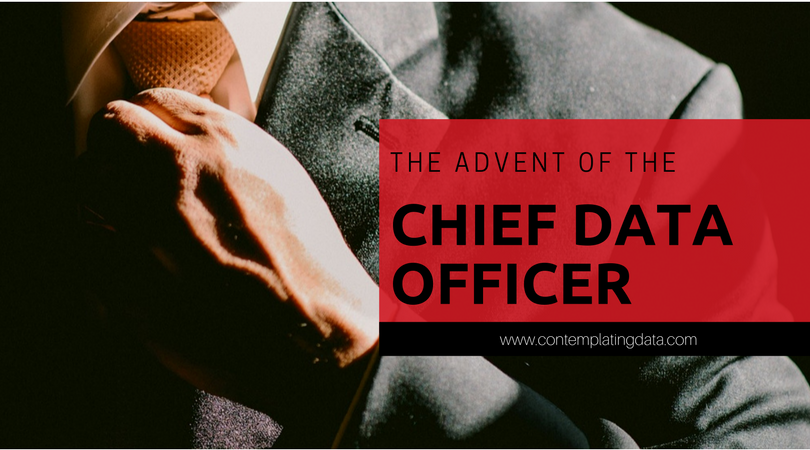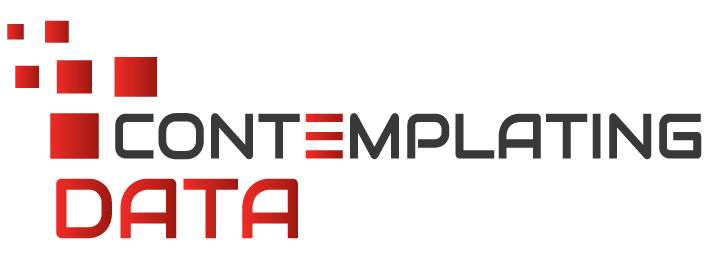With the rise of data and the introduction of “Big Data” into the businesses over the recent years, it had become evident for the organizations that they need to understand the data better and make use of it in business growth. In the last couple of decades, with the influx of technology use in organizations, we saw the emergence of CTO and CIO roles and with the recent advancements, the role which is rapidly spreading is that of Chief Data Officer (CDO).
The Chief Data Officer (CDO)
The CDO is an executive level position and is organizationally sanctioned to establish a data strategy and empower data teams to create a data platform. Data platform should aim to create a foundation for data-driven decision making to be realized by the business via the capabilities provided by the platform. Whether it is about taking advantage of data to generate value for business or to make sure authorities implemented data handling guidelines are met and maintained; many organizations have started appointing CDOs to handle these issues and opportunities. As the role of CDO is still new, the primary responsibilities and accountability of CDO vary a lot in different organizations. This being said, there are still distinct categories and patterns of responsibilities which falls under the territory of CDO.

In this article, we will try to look at the current landscape when it comes to the role of CDO.
The emergence of the role of CDO
The role of Chief Data Officer mostly emerged in the initial days to oversee the compliances in the highly regulated industries like Healthcare, Finance, Online Betting etc. Those were the only industries having CDO positions before it became mainstream.
The protection of sensitive personal data and other facets of data is one requirement, but the creation of new data products and service to generate value for the company is another. Recently even the companies outside the regulated sectors started appointing the CDOs to cater to the second opportunity.
Now an obvious question is if CDO and CIO really that different roles? Well yes, they are. Some of the responsibilities may overlap between the two but there are areas of specialty and expertise which are unique to CDO and falls outside the scope of CIO. Big organizations are making conscious efforts to move the data authority from those who control technical infrastructure and development into an individual vertical which is what separates responsibilities of CDO from CIO.
Chief Data Officer is also not a replacement of the existing data managers. In fact, CDO enhances their effectiveness by leading and collaborating with them in the setup of a unified data platform in order to effectively deliver data products and services.
Responsibilities of Chief Data Officer (CDO)
The responsibilities of CDO are very broad and horizontal in nature. Chief Data Officer needs to focus on wide range of tasks. An ideal CDO should be able to look at the technical details and requirements but also on the bigger picture at the same time.
In data-driven organizations, data being the central unit of operation, the Chief Data Officer should be able to provide the work environment for successfully operating with different departments of the organization. S/he should also be able to drive and align the business need of the organization with the technical and data needs. By doing so, the success of the data team would get amplified and noticed by other executive leaders. This will generate an overall belief that data is a core value rather than a mere by-product.
Another focus area for CDO is to find the balance between ideal strategies and possible practical implementation between short and long-term budget concerns and among competing department priorities. This is one such responsibility which generally requires a level of diplomacy and the ability to collaborate and educate others. This collaboration and education need to be both ways to the subordinates as well as the operational management committee.
Besides these broad and high-level responsibilities, there are some very specific responsibilities which most of the CDOs are trusted to perform:
Centralization
Large-scale enterprises may have dozens of divisions, brands or even companies all running independent to each other for most of its operations. But all these entities produce data which is useful for the enterprise to analyse for actionable results. The Chief Data Officer is in charge of overlooking the data from across these different sources and bringing it into one central location and in a single standardized format which can then easily be put to use.
This centralized data unit is the first step towards a data-driven organization and one of the core responsibilities of CDO. The target should be to facilitate the gathering of as much data as possible from internal as well as external sources. For example, a 360 view of a customer if available can help the organization in taking more customer-centric decisions and help in growing/sustaining the customer base. Let us say a customer calls the finance department with some query and if 360 view of the customer is available to the attending representative s/he can pull out the customer as a unit instead of just financial transactions of that customer in order to understand and assist them better.
Most of these tasks fall under data integration and aggregation, so why are we talking about centralization here? Well because the role of CDO is much bigger than just aggregating data, it is also about centralizing the way company priorities are determined and to address data needs of the future. The role involves thinking about the bigger picture and also thinking ahead about what the company should be doing with this data over a three to five-year horizon.
Collaboration (Inwards/Outwards)
Having a CDO and the data team is not like adding another department that adds incremental capabilities. It is more like developing the nerve system. It needs to operate and work with all the other parts of the system, to collect and the pass along data and insights which allow for better collective action and decision-making.
So one major responsibility of CDO is to handle outwards collaboration with other teams i.e. be an advocate of data-driven approach and convincing others in the organization that this approach is worth investing in. To make this approach a success, the whole data team and the work being done needs a certain level of visibility and marketing to other stakeholders within the organization. This can be achieved if CDO is able to convince the organization that data is not just another part of technology but is an integral part of a larger common goal on the organization level.
Another part of the collaboration is inwards collaboration within the different departments of the data team. It includes providing meaningful and transparent processes for the work to be done across the departments/sub-teams and responsive ownership for all of the processes and projects. Data quality and exposure of data to outside stakeholders in the forms of dashboards, APIs etc is one of the parts which requires collaboration across team be it traditional data, big-data, data science, business intelligence or data services.
Facilitation
Among the responsibilities of CDO is also facilitating the team to make better, more efficient actions possible and to remove some barriers and free up the resources to make all this possible. Regularly interacting with data stakeholders to discuss their use-cases and challenges is another important component of facilitating the growth and adoption of data-driven projects.
Another critical part of facilitating action is providing new tools and technologies making the team capable of delivering what they are expected to deliver. Followed by facilitating other departments in using the deliverables by making support and training on the services available.
Business Value Impact
The Chief Data Officer will also need to focus on delivering data as a service as required to improve the efficiency of and reduce risk to the business. The CDO and the leadership team usually need to look at the strategies to address the data product demands by other teams as well as prepare and suggest data products that facilitate insights for data-driven innovation and competitive advantage.
A key to success for a CDO is being able to speak both businesses as well as technical languages and more important is that s/he should be able to translate between the two.
Challenges of the role
Most important part of CDOs job is to align technology with business goals. A lot of great things can be done with evolving technology but are they required for your business is the questions. This is what CDOs need to answer. So one of the biggest challenges is to make sure that the path the data team takes should have outcomes which strengthen the organizations.
In order to follow a good and productive organizational path, the CDO and the leadership team should have data strategy in place. It should outline the things which will strengthen the organization, a roadmap on how to achieve those targets, and actions which need to be taken to follow the roadmap of the data strategy. The last part of the data strategy “actions to be taken” is the most important part because, without this, data strategy will not be able to deliver results.
Another challenge faced by CDOs is to make sure that proper data governance is in place especially regarding the private data of customers. A lot of industries are governed by strict data governance rules but others are not, still maintaining good governance is hard but very important.
Chief Data Officer also needs to derive the value of data through data product uptake in the organization making people realize the value of data and advantages of data-driven decision making.
Besides that, one significant challenge for a CDO is not technology related but it is the people management. CDOs need to address the human part of the equation too. CDO should not only concentrate on projects, roadmap etc but also on grooming people in the team who can take decisions and act on them in order to deliver results. Other than the team members, handling other stakeholders and making it all work together is a significant challenge for a CDO.
Besides all the challenges CDOs have to tackle with, the good news is that the organizations are starting to understand the importance of data-driven decision making. Another factor adding fuel to this is that there will be no magazine or technical publication today without an article about big data and data-driven business and how it is important for the organization to adopt.
Final Thoughts
With the emergence of data and related technologies, it is becoming clear that data and data-driven organizations will be the sector leaders in the future. This result is a lot of organizations investing in data platforms, data teams and to manage all this in Chief Data Officers.
CDOs role is still evolving and every organization has their own definition of the role and responsibilities but one thing is for sure that CDO needs to be a seasoned executive with deep knowledge of data and its applications. S/he need to be able to face the challenges and to be able to tap into the opportunities.
With passing time the role and responsibilities of CDOs will stabilize and it will become an important part of the C-Level positions providing value to the organization with all the available data.
